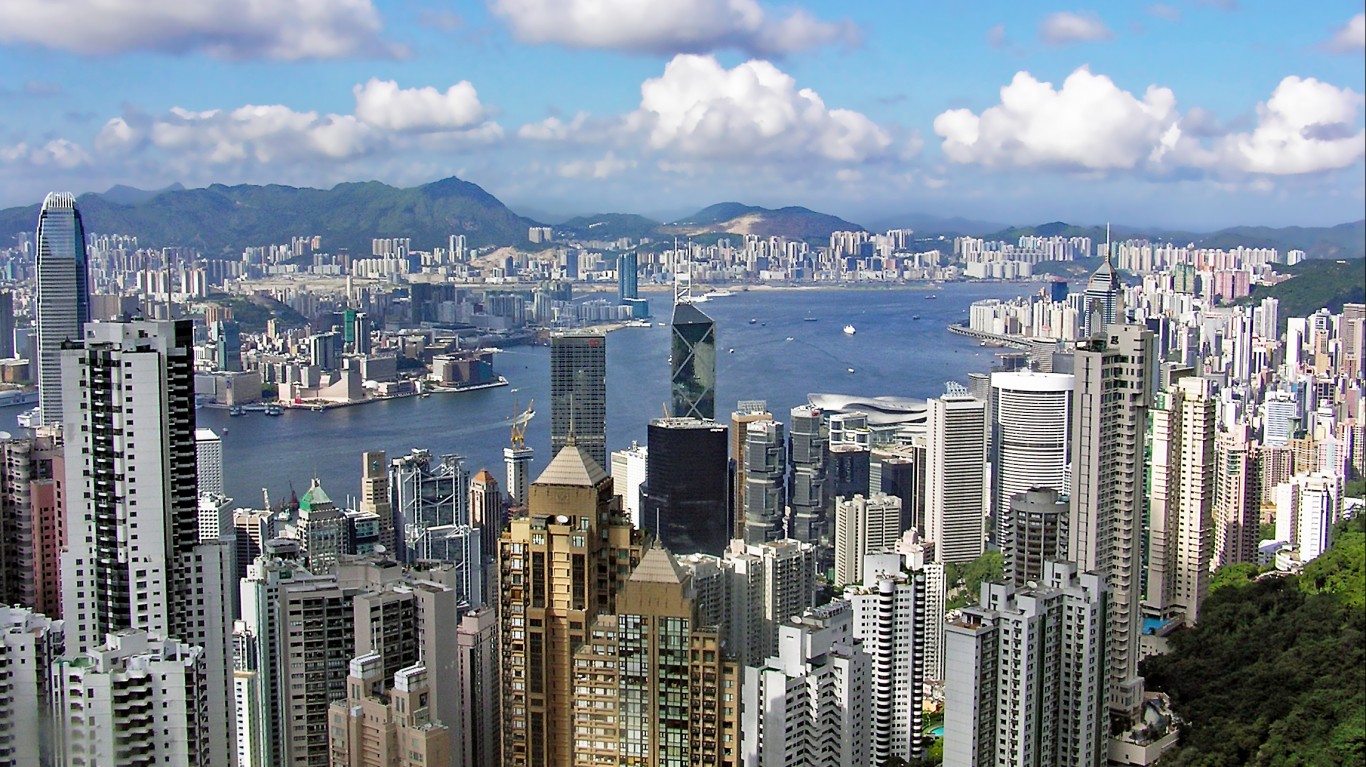Energy
This Is the Place With the Most Expensive Gas in the World

Published:
Last Updated:

U.S. regular gasoline retail pump prices have been creeping higher since starting 2019 at a low of $2.24 a gallon. There is more than one reason for the rise, but rising crude oil prices play the largest role. For the most part, the price of gasoline follows the same path all around the world.
There are exceptions, however. Some of the most expensive gasoline in the world is sold in some of the world’s most expensive locations. No surprise there. But high prices also can be found in some pretty unlikely locations.
When it comes to the world’s cheapest gasoline, there are not a lot of surprises either. Countries that enjoy large reserves of crude oil also enjoy low pump prices for gasoline. The United States, soon to become a net exporter of oil and petroleum products and the world’s largest crude producer with daily average production of 17.87 million barrels last year, ranks 37th from the bottom out of 164 countries, right behind Panama and just ahead of Belarus, according to data from GlobalPetrolPrices. Prices at the pump do vary across the U.S., due in no small part to differing gas taxes. These are the states with the highest and lowest gas prices.
The country with the most expensive gasoline in the world is Hong Kong, where a gallon of gas on July 29, 2019, cost $8.41, more than a dollar higher than the next highest priced place. A Special Administrative Region of China, Hong Kong is the world’s eighth-most expensive place to live, according to CEOWorld’s 2019 rankings.
The country with the cheapest gas is also the world’s leader in proved petroleum reserves. Venezuela is essentially giving gasoline away. According to Picodi.com, a gallon of gas in Venezuela costs $0.000000007. That’s close enough to free for us.
The global average price per gallon is $4.22. Of the 164 countries included in the GlobalPetrolPrices data, gas prices are below average in 82.
Norway and Iceland trail Hong Kong with per-gallon prices of $7.39 and $7.38, respectively. While Norway is among the world’s leading producers of crude oil, gas prices reflect the country’s determination to eliminate fossil-fuel burning. Norway is also the third-most expensive place in the world to live, while Iceland is the second-most expensive.
Earlier this year, Monaco had the third-highest gas price among all nations, but it has now seen its rank drop to fourth. This principality along the Mediterranean coast of France posts an estimated gross domestic product (GDP) per capita of $115,700, based on the twin pillars of tourism and banking.
Gas in the Caribbean nation of Barbados costs $7.25 a gallon. The country has virtually no crude oil reserves and no refining capacity, but it has a thriving tourism industry. It is one of the wealthiest and most developed countries in the region, with an estimated 2017 GDP per capita equal to 152% of the World Bank’s global average.
The other side of the coin is the countries where gas is cheapest. Venezuela is in a zone of its own, but in two other countries a gallon of gas costs less than $1.00. The price in Cuba is $0.34 per gallon, and in Sudan a gallon costs $0.52. Sudan holds 5 billion barrels of proved reserves, while Cuba’s reserves are a scant 124 million barrels. Politics, not wealth, keeps prices low in these two countries.
Iran ($1.08 a gallon) and Kuwait ($1.30) round out the five countries where gasoline is cheapest. Both are members of the Organization of the Petroleum Exporting Countries (OPEC). Iran holds the world’s fourth-largest cache of proved crude oil reserves, while Kuwait ranks seventh among the 15 nations with the world’s largest reserves. These are the countries control the world’s oil.
Start by taking a quick retirement quiz from SmartAsset that will match you with up to 3 financial advisors that serve your area and beyond in 5 minutes, or less.
Each advisor has been vetted by SmartAsset and is held to a fiduciary standard to act in your best interests.
Here’s how it works:
1. Answer SmartAsset advisor match quiz
2. Review your pre-screened matches at your leisure. Check out the advisors’ profiles.
3. Speak with advisors at no cost to you. Have an introductory call on the phone or introduction in person and choose whom to work with in the future
Get started right here.
Thank you for reading! Have some feedback for us?
Contact the 24/7 Wall St. editorial team.